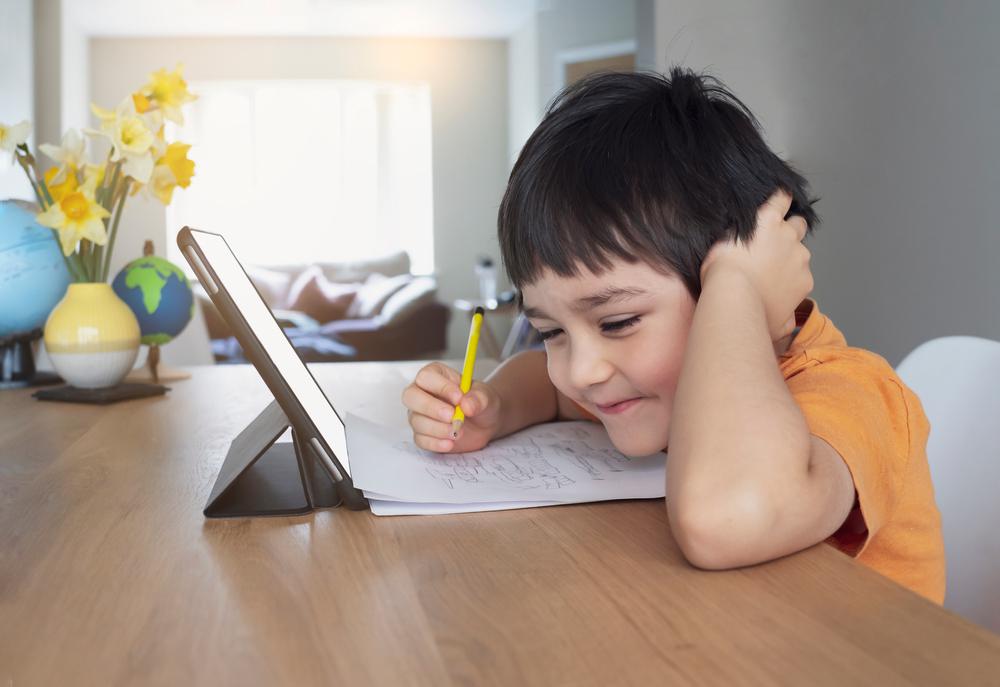Songs Worksheets for Ages 3-9
11 filtered results
-
From - To
Explore our captivating Songs Worksheets designed for children ages 3-9! These engaging resources foster early literacy and language skills through the joy of music. Each worksheet features delightful song lyrics paired with fun activities to enhance reading comprehension and vocabulary. Kids will love singing along while practicing essential skills like rhyme recognition, phonetic sounds, and word associations. Perfect for home or classroom use, our worksheets encourage creativity and make learning enjoyable. Download today and watch your child's love for music translate into reading success! Unlock the magic of learning with our comprehensive, kid-friendly worksheets that make education an island of adventure.
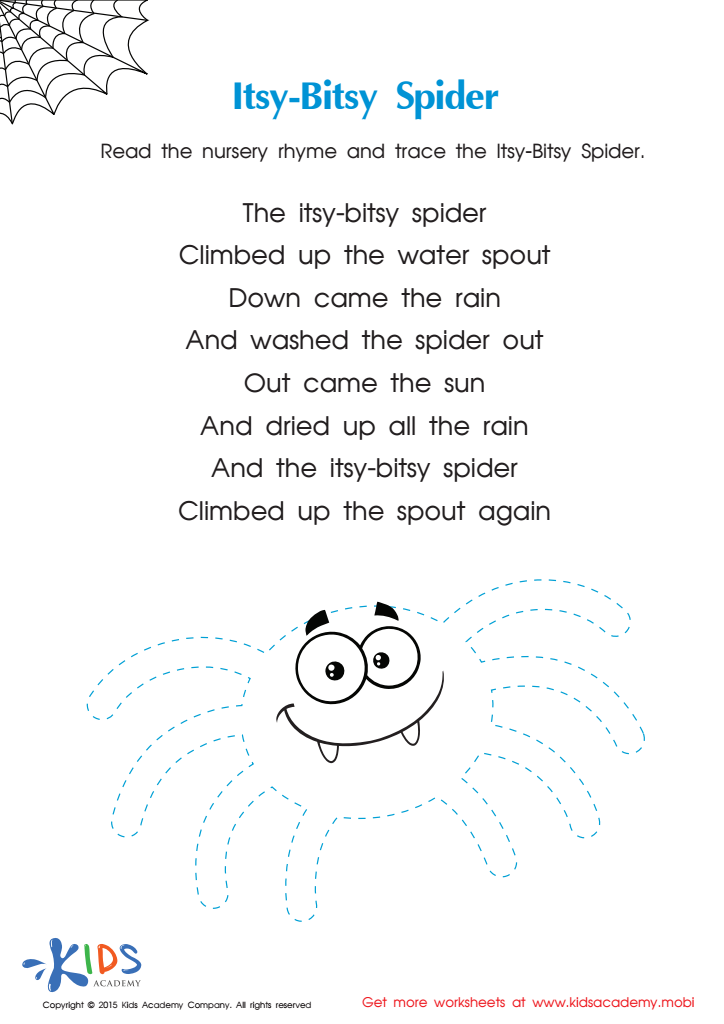

Itsy Bitsy Spider Nursery Rhyme PDF Worksheet


Baa Baa Black Sheep Printable
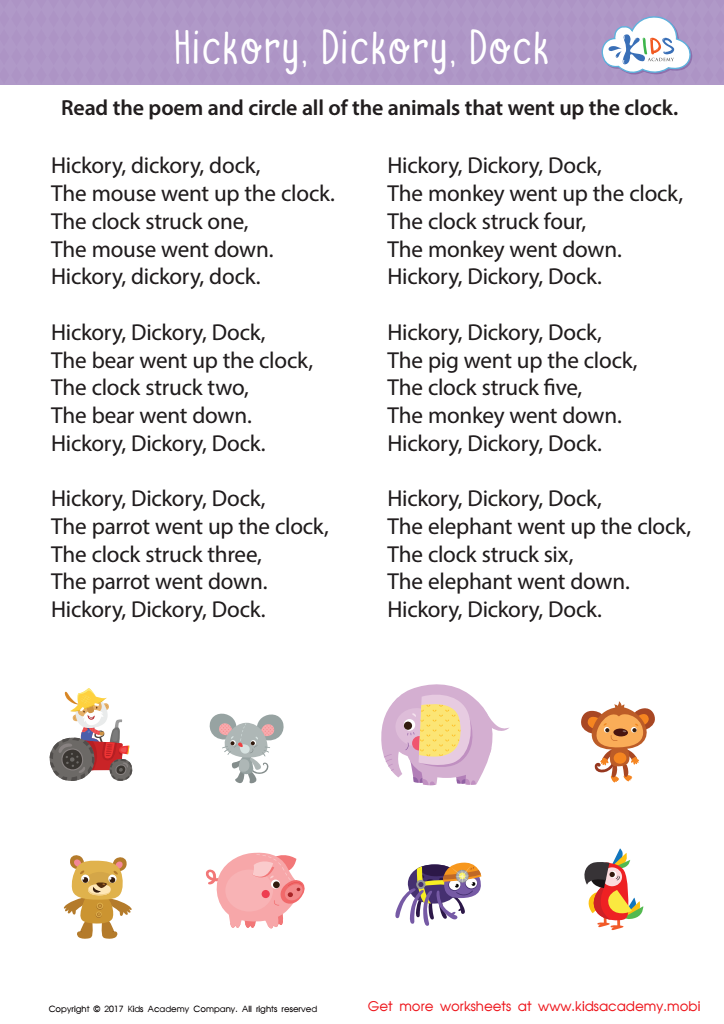

Hickory Dickory Dock Sequencing Worksheet
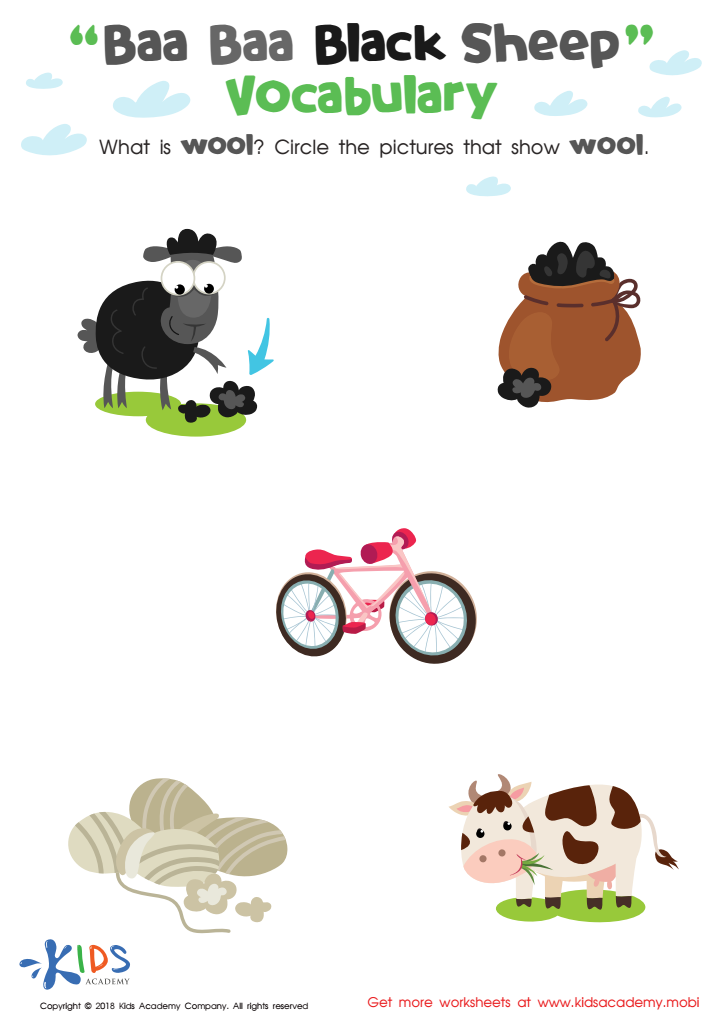

Baa Baa Black Sheep: Vocabulary Worksheet


The Five Little Monkeys Nursery Rhyme Worksheet
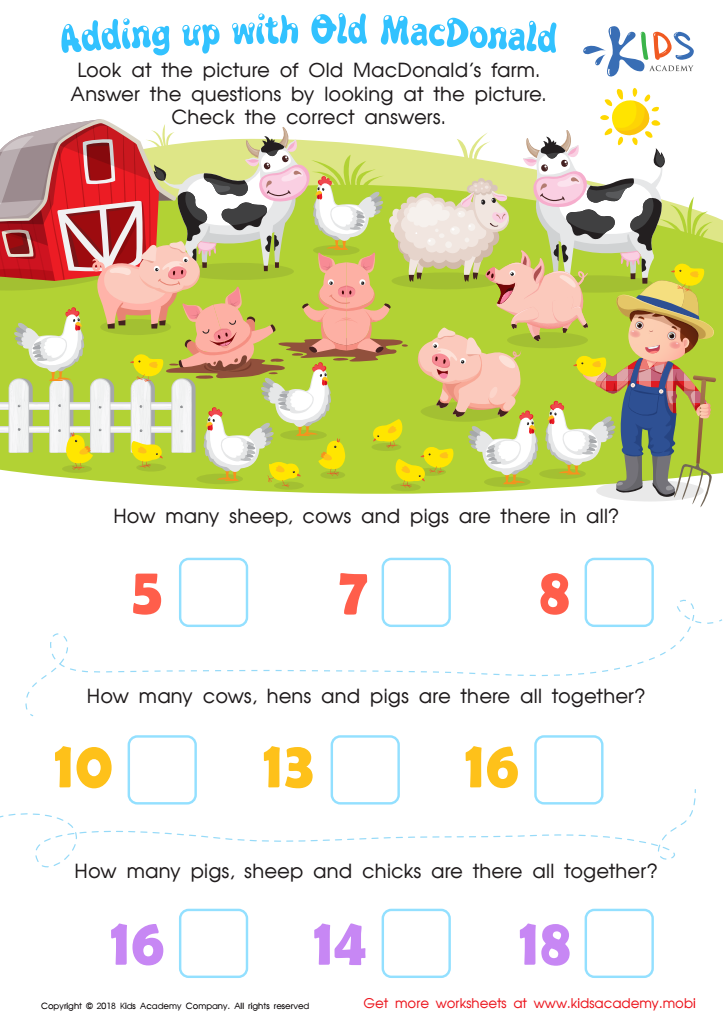

Adding Up with Old MacDonald Worksheet
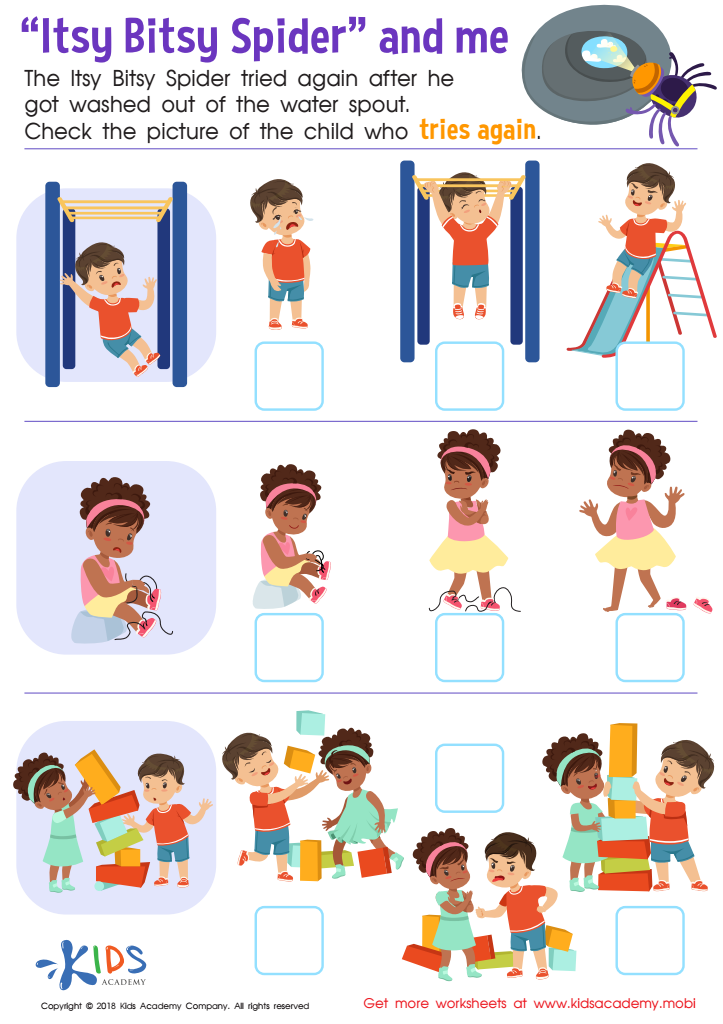

Itsy Bitsy Spider and Me Worksheet
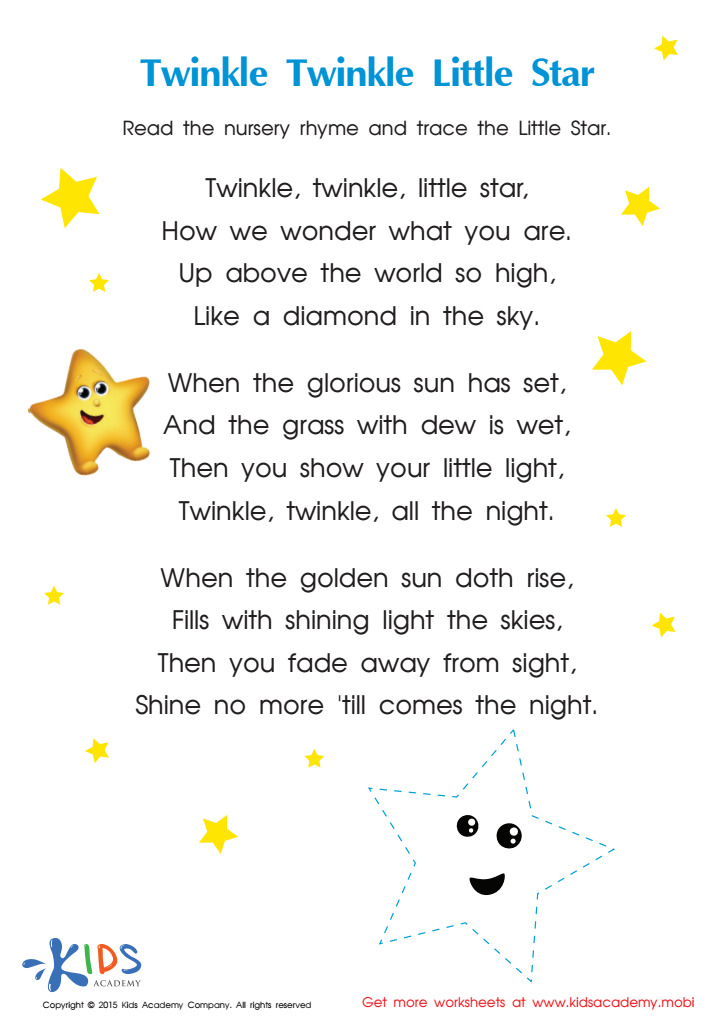

Nursery Rhymes: Twinkle Little Star Worksheet
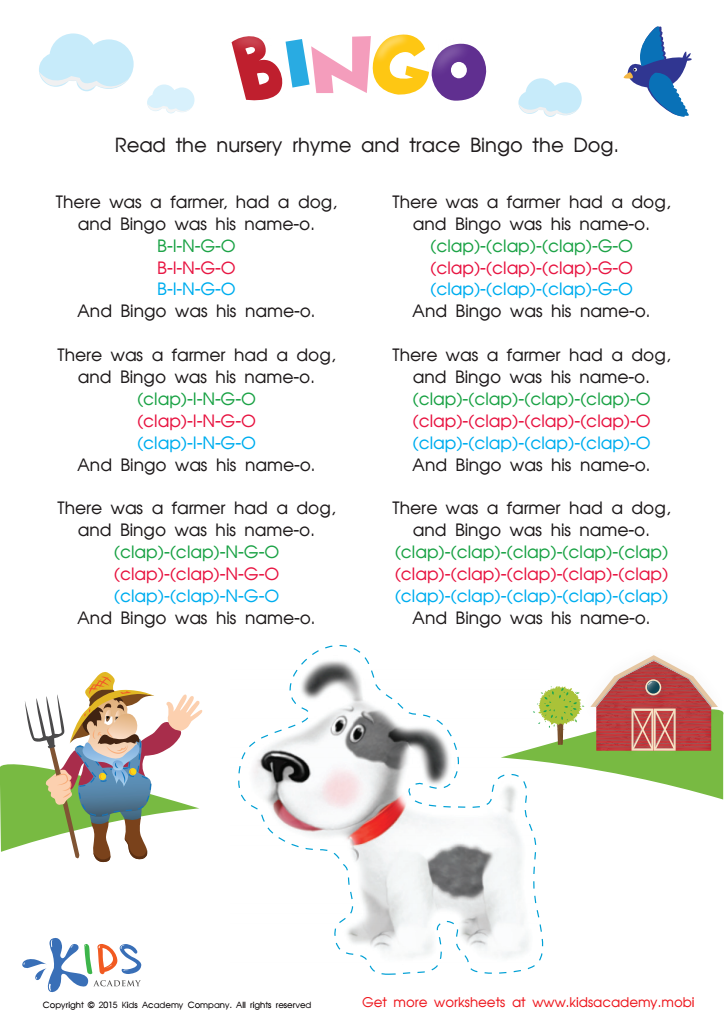

Nursery Rhymes: The Bingo Song Worksheet
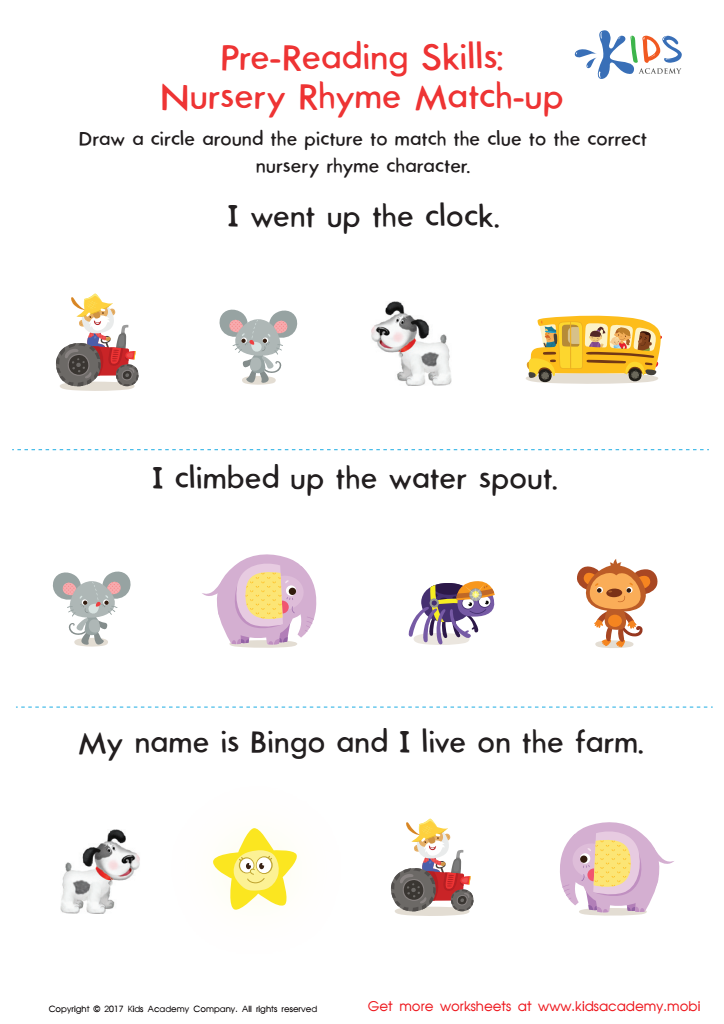

Nursery Rhyme Match–Up Worksheet
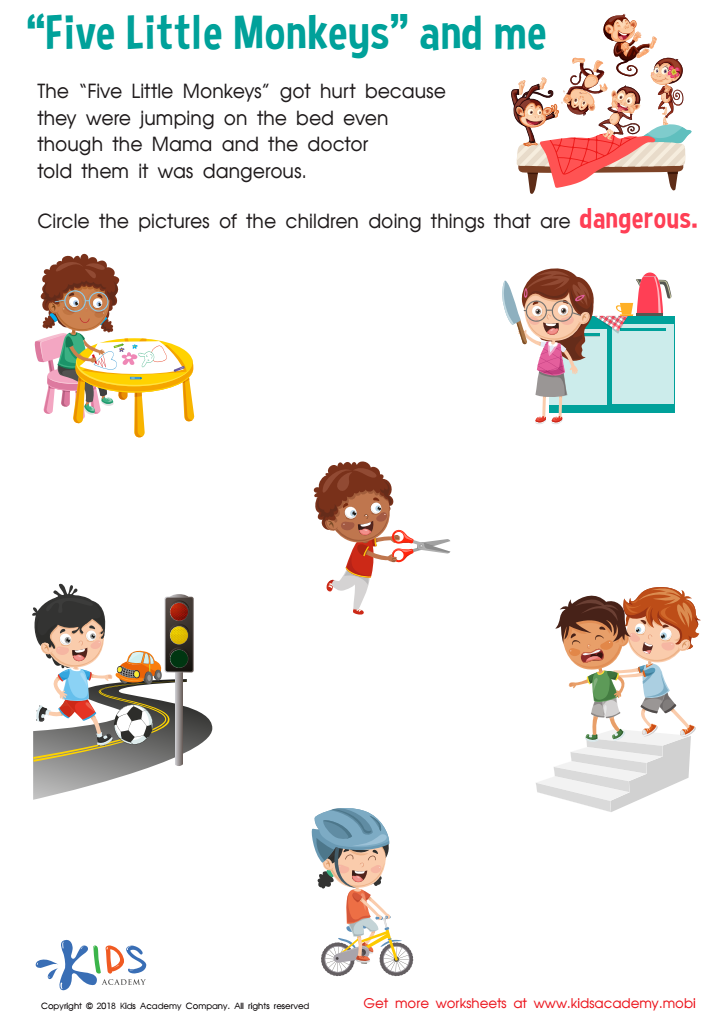

Five Little Monkeys and Me Worksheet
Songs for ages 3-9 are essential tools for both parents and teachers because they play a pivotal role in children's early development. Music can enhance language acquisition, improve memory, and foster creativity. Through rhythmic patterns and melodies, children can learn vocabulary, pronunciation, and syntax in an engaging and enjoyable manner.
Additionally, songs often introduce educational concepts in a fun way, helping children grasp numbers, colors, and other fundamental ideas while promoting cognitive development. The repetition in songs aids memory retention, allowing young learners to internalize information more effectively.
Beyond academics, music fosters social skills. Singing together encourages cooperation, turn-taking, and listening, vital components of interpersonal relationships. Furthermore, songs can help children express their emotions and enable emotional regulation, contributing to their social-emotional development.
Furthermore, incorporating music in the classroom or at home makes learning a memorable adventure, stimulating curiosity and enhancing focus. As songs often carry cultural narratives, they also promote diversity awareness and inclusion.
Incorporating songs into daily routines or educational settings can enrich children's learning experiences, making learning holistic and dynamic. Thus, both parents and teachers should prioritize music as an integral part of early childhood education.
 Assign to My Students
Assign to My Students






